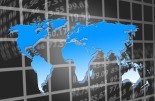Anand Menon: Everything is becoming more intense thanks to Trump
Anand Menon: Everything is becoming more intense thanks to Trump

This interview was originally written in Dutch. This is an English translation.
The re-election of US president Donald Trump is causing unrest worldwide, including in Europe. Trump's return is yet another reason to intensify European cooperation, at least in the area of defence.
By Joost van Mierlo
Anand Menon is Professor of European Politics and Foreign Relations at King's College in London. As the director of the ‘UK in a Changing Europe’ think tank, he is one of the experts on the British exit from the European Union, now five years ago.
He also closely follows developments surrounding the start of Donald Trump's presidency. The only thing he believes he can predict is that it is impossible to predict what is about to happen. ‘Trump just loves to cause surprises,’ says Menon.
What does Donald Trump's return as president mean?
'His return will cause all kinds of problems. The United Kingdom has never wanted to make a real choice when it comes to its relationship with the United States and the rest of Europe. That was why French president Charles de Gaulle spent his entire life opposing the United Kingdom's membership of the EU. His idea was that the United Kingdom would be a ‘Trojan Horse’ for the Americans in Europe.
The British, of course, do not see themselves as a Trojan Horse, but as a bridge builder between the United States and the European Union. But the arrival of Trump makes that more difficult. It is very possible that Trump will treat the UK more leniently than the EU when it comes to import tariffs. The United States simply does not have a trade deficit with the UK, as it does with the EU.
Trump could tell the UK that a deal can be made on lower tariffs, but it will most likely be at the expense of the relationship with Europe. The role of bridgehead will no longer be possible. Trump is presenting the United Kingdom with a choice. It will be at the expense of the relationship with the EU or at the expense of the relationship with the US. It is unfortunate for Prime Minister Keir Starmer, but he will have to choose.'
Elections will be held in Germany on 23 February. Will the arrival of Trump influence the outcome?
'If there is one lesson from the elections in the past year, it is that it is not very favourable to be the governing party. That probably applies in Germany and in a few years in France. European countries simply have a problem realising economic growth. There is a crisis going on in European capitalism. It doesn't matter whether you have a left-wing or right-wing government, you are simply at a disadvantage if you are in government.
As for Trump, I don't think he will have a major influence on the European elections. He is simply not very popular in Europe. The same goes for the more populist parties. He only appeals to a small portion of their supporters.
The relationship with Europe will become less important for the United States in the coming decades
I also expect Trump to face divisions within his own party. This is already the case with immigration. Elon Musk & Co do not want to see any changes to the immigration of skilled personnel from India, for example. This does not go down very well with Trump's MAGA supporters. Trump will have to make choices that are unpleasant for some of his supporters.'
Regarding the political situation in the United Kingdom, what do you think of the success of the populist Reform UK party?
'I don't think Reform is a major threat. At least not to Labour. There is a lot of fuss being made about the fact that Reform is the second party in ninety constituencies, after Labour. However, the UK is divided into a total of 650 constituencies and Labour currently has 402 seats. In most cases, the deficit in those constituencies is substantial.
In addition, there is a huge variation in the constituencies, in the North and in London. Very different issues are at play. It is difficult for Reform to come up with political plans that will appeal to everyone. Reform leader Nigel Farage is of course a master when it comes to dealing with apparent contradictions, but in this respect I think even Farage will be confronted with insurmountable problems.
I therefore think that Reform's influence will remain limited, at least more limited than that of populist parties in the rest of Europe. Many voters have had enough of traditional parties in Europe because those parties appear unable to ensure economic growth. But for the United Kingdom, the danger of Reform, if it is even a danger, is probably exaggerated.'
Back to Trump. US import tariffs have already been imposed on Canada and Mexico. They will probably be imposed on other countries in April. What does that mean?
'As far as economic growth is concerned, we will have to wait and see. Inflation is a major problem in the United States. Imposing import tariffs will not help. And then there is also the budget deficit, which is likely to increase considerably. By the time the mid-term elections roll around, there could be a new inflation crisis, the economic situation in the United States could be considerably weakened and Trump's position could be completely different.'
You have already raised the issue of defence. What needs to happen in Europe?
'As with almost everything Trump says, there is some truth to it. Europe has benefited from a “free rider” status when it comes to defence since the Second World War. This has been an issue for some time. Trump is intensifying everything, but regardless of him, it is certain that the relationship with Europe will become less important to the United States in the coming decades.
I expect Trump will face division within his own party. That is already the case with immigration
European leaders would do well to take this into account now. This means that cooperation in the area of defence must be intensified. That does not necessarily mean that more money needs to be spent. The problem with European defence is that there is an awful lot of duplication.
There are 27 EU countries plus the United Kingdom that could be much more effective and efficient in their defence spending. That is what the talks should focus on. That would have been necessary even without Trump's return. It is just becoming more urgent.'
What does Trump's arrival mean for climate change?
'Of course it is not a good sign that the US is withdrawing from the Paris Climate Agreement. But that is not the whole story. It is not called the United States for nothing, it is a federal system. Washington may withdraw when it comes to climate change, but in California the adjustments are continuing as usual.
And the fact that the country no longer plays a leading role in the fight against climate change means that there is room for others. China is of course already playing a very important role, but it is interesting to see whether Europe will make use of the space it is now being given in this area.'
You spend a large part of your time analysing the consequences of Brexit, now five years ago. What are the consequences?
'Let's take a step back. The decision to leave the EU was largely based on a number of assumptions. For example, the idea was that we could rely on the US for our security. There was no need to intensify cooperation with European partners. Trump may have said that NATO is secure, but it is clear that we need to cooperate more with the EU when it comes to defence.
Secondly, it was assumed that globalisation was a process that would continue unimpeded. According to some Brexiteers, a golden future awaited us, a new Golden Age like in the time of Elizabeth I (1533-1603), when the world opened up.
But if the globalisation process has not been completely halted, it has at least become considerably less visible. Countries have been concerned about supplies since the developments in China, around Covid-19 and in Ukraine. The primary focus now is on protecting their own economies rather than trade.
Inflation is a major problem in the United States. Imposing import tariffs does not help.
The third assumption was that our most important trading partners would remain stable. That has not proven to be the case. Our most important trading partners, the EU and the US, have become more mercantilist in recent years, meaning that they have started to protect their own industries and sectors more with subsidies and, in the case of the United States, probably with new import tariffs.'
And what has Brexit meant for the UK itself? There is talk of Boris Johnson breaking the agreement. What can we expect?
'It is evident that the economic consequences of Brexit are negative. It has become more costly and difficult to trade with the EU, a group that is responsible for half of our exports.
Of course, one could say that the solution is to become part of the Customs Union again, or even the internal market. But the current government has ruled that out, and it is also virtually impossible for a country the size of the UK to accept the rules that come with it without having any influence over them. The UK is simply not Norway.
I fear that the urgency within the EU to negotiate partial agreements is not very great. After all, most countries have other things on their minds. The consequence is that the shadow of Brexit will continue to hang over our country for a long time to come.
Only Trump's unpredictability is predictable.'
|
SUMMARY Europe must start thinking seriously about its own defence. Trump will soon have to deal with the controversies within his own party. Only Trump's unpredictability is predictable. |
| Anand Menon is Professor of European Politics and Foreign Affairs at King's College London. He studied at the University of Oxford and later became Professor at the University of Birmingham, where he founded the European Research Institute, among other things. Menon is currently the director of the think tank UK in a Changing Europe, which recently published The Brexit Files. He has written several books, including Europe, the State of the Union (2008) and Brexit and British Politics (with Geoffrey Evans, 2017). He is co-editor of the journal West European Politics. |








